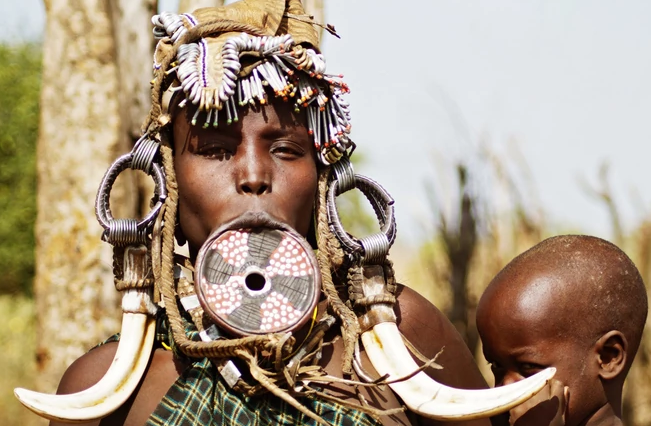Africa is a continent blessed with different cultures, while each country has a peculiar way of life. One of the countries with this unique cultural heritage in Africa is Ethiopia.
Ethiopia is an eastern Africa country which is diverse and generally structured along ethnolinguistic lines.
It is the tenth-largest country in Africa and the only African country that has never been under colonial control.
It is believed to be the land of the oldest people and a hotspot of scenic natural wonders, fascinating history, and deep-rooted identity.
Here are some unusual facts about the Ethiopian culture:
13 MONTHS IN A YEAR:
This would probably be the most surprising thing you might have heard this year. Almost all countries use the Western Gregorian calendar which has 12 months in a year but an Ethiopian year is comprised of 13 months.
The Ethiopian calendar has twelve months of thirty days while the thirteenth month consists of five or six epagomenal days — depending on whether it’s a leap year.
Literally, it means that Ethiopia is currently in 2014 and not 2021 like most countries.

LIP PLATE CULTURE:
The Mursi are a Surmic ethnic group in Ethiopia. They live in Omo Valley, an isolated region in Ethiopia. This tribe cherishes the lip-plates culture because to them, it is a symbol of beauty and identity. These plates are mostly made of clay, wood, or metal disc and the process involves removing two to maybe four teeth then cutting out the lip to fit the plate.
According to ICDO, “Lip plates are more frequently worn by unmarried girls and newlywed women than by older married women with children. They are generally worn on occasions such as serving men food, milking cows, and important rituals like weddings.”
Surprisingly, they also increase the size of the plate because they believe it increases their self-worth.
GREETING RITUALS:
Greeting people is highly valued in Africa but in Ethiopia, it is an important and somewhat lengthy ritual. There must be direct eye contact when greeting an Ethiopian and greetings are not rushed because consent is taken especially between opposite genders.

Weeby reported that “shaking hands, kissing and hugging is part of the normal greetings and is not, in any way, an expression of sexual affection. It is common to see women kissing women, women kissing men, and men kissing men on the cheek in public including in the office. This does not necessarily mean, however, someone may hug and kiss a person whom they have never met before.”
CHILDBIRTH AND POSTPARTUM PRACTICE:
During this period, the father of the baby is isolated. This means when a mother goes into labour, only close female friends and family are informed and most surprisingly, the newborn baby and mother are kept in isolation from the father for 40days for some unknown reason.
Copyright 2024 TheCable. All rights reserved. This material, and other digital content on this website, may not be reproduced, published, broadcast, rewritten or redistributed in whole or in part without prior express written permission from TheCable.
Follow us on twitter @Thecablestyle

